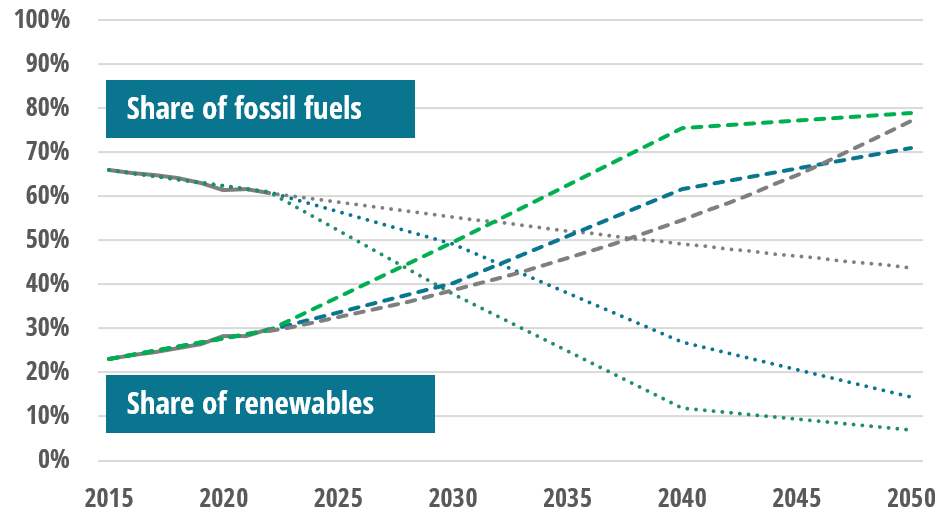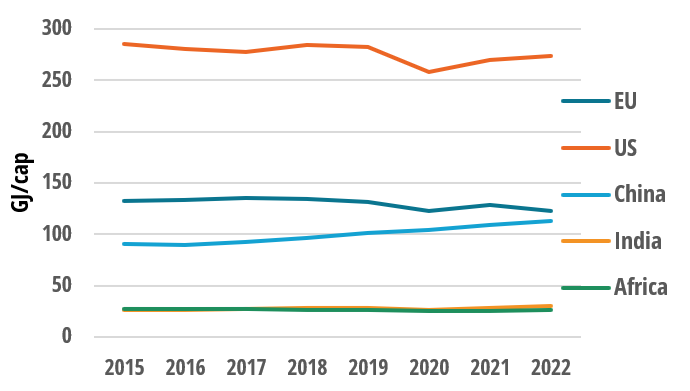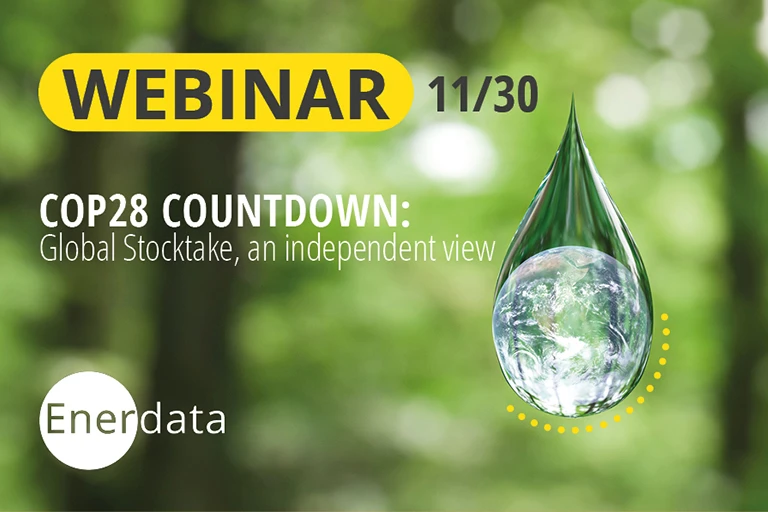Request the full presentation (FREE)
The progress on climate action between COP21 and COP28, and the next priorities
At the beginning of the COP28, where high anticipation surrounded the conclusion of the inaugural Global Stocktake (GST), Enerdata was pleased to facilitate a webinar to present their own analysis of the GST. The aim was to provide a thorough overview of whether energy trends align with the Paris Agreement objectives, and to assess the achievements made since COP21 in 2015.
What exactly is the Global Stocktake?
- The GST, a component of the Paris Agreement, enables to assess the progress and implementation of NDCs.
- It does not provide a detailed country or sectoral analysis, nor does it offer a comparison with the planned or necessary trajectory.
Consequently, we decided to leverage our expertise in energy and modelling, coupled with our comprehensive databases, to provide our own analysis delving into detailed insights per country and sector.
The analysis explores the following topics, assessing their respective successes or failures associated to NDCs:
- Geopolitics: Since the Paris Agreement, the world has experience significant changes that challenge the globalisation process.
- CO2 emissions continue to grow instead of being capped. The slowdown in economic growth and the energy and carbon intensity improvements are not sufficient to curb emissions.
THE EVOLUTIONS OF GLOBAL CO2 EMISSIONS FROM ENERGY – expected in 2015, and observed nowadays

Source: Enerdata, Global Energy & CO2 Data, EnerFuture
- In the residential sector, increasing energy demand is driven by demographics, living standards, and behaviours.
- Traffic volume continues to increase, and oil remains overwhelmingly dominant in the transport sector.
- Industrial output is rapidly rising, jeopardising efforts to limit carbon and energy intensity.
- Electrification is gaining momentum but without significant impact yet. Fossil fuels still dominate power generation, despite the growing part of renewable energies in the power mix.
SHARE OF FOSSIL FUELS vs RES IN POWER

Source: Enerdata, Global Energy & CO2 Data, EnerFuture
- Developed countries need to accelerate the transition; current progress is not sufficient to bridge the gap between ambition and implementation.
- In China, despite improving trends in energy and carbon intensity, activity continues to drive energy consumption and emissions.
- In Africa, although the contribution to global CO2 emissions is low, structural challenges remain.
- Energy consumption appears to be the new top priority: unlocking the potential of efficiency and sufficiency should help with an urgent and equitable transition.
FINAL ENERGY CONSUMPTION PER CAPITA

Source: Enerdata, Global Energy & CO2 Data
 Energy and Climate Databases
Energy and Climate Databases Market Analysis
Market Analysis